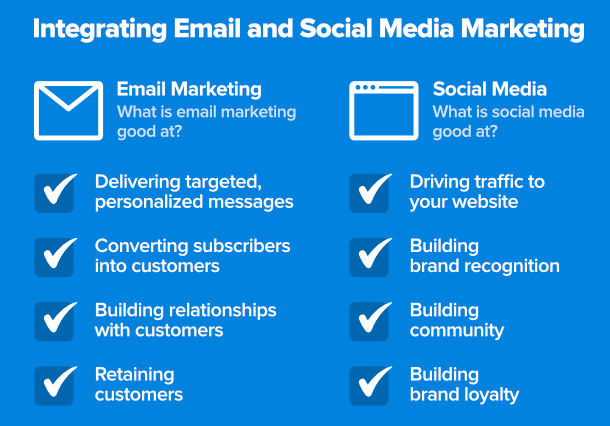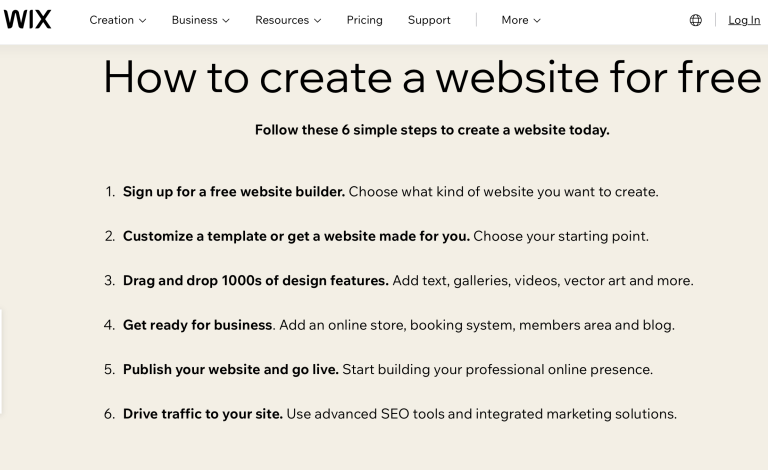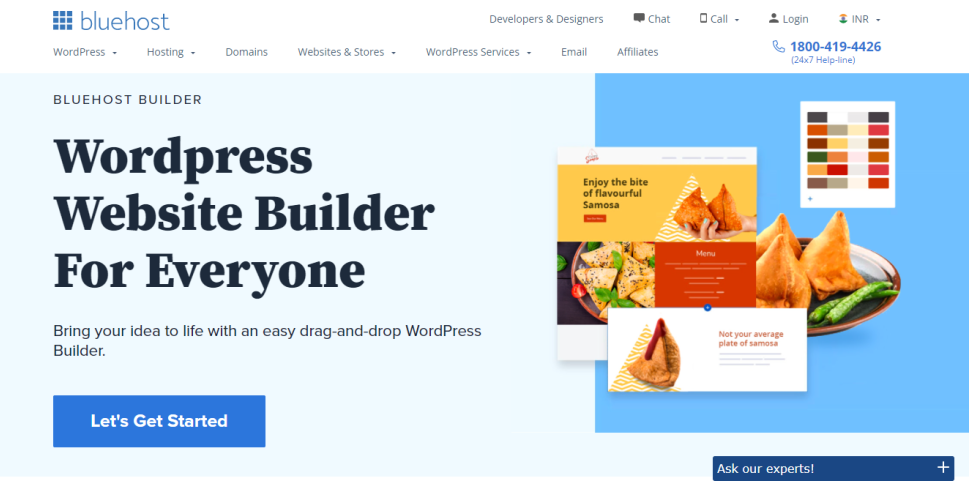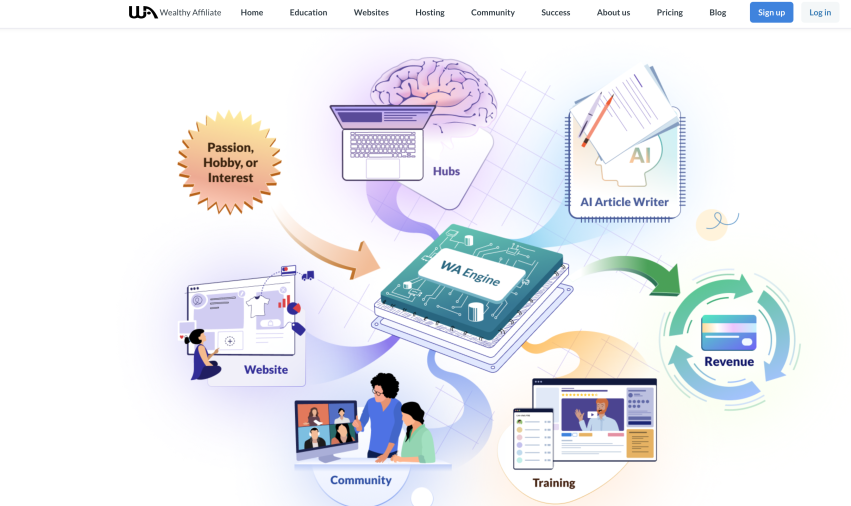I’m going to kick things off by laying the foundation for what you’re about to dive into. Affiliate marketing might seem daunting at first, with its jargon and the array of tools at your disposal. But don’t worry too much about that; I’m here to guide you through the essential tools every beginner affiliate marketer needs to start on the right foot.
Affiliate Marketing Landscape

You’re going to find out that understanding the landscape of affiliate marketing is like learning to navigate a new city :- acquiring city maps, use of google Maps, understanding the city’s transit system, pinning landmarks etc.
It’s about knowing which tools will help you optimize your journey and which are just nice to have. We’ll focus on tools that provide real value and support to help you connect with your audience effectively.
This isn’t just about showing you tools; it’s also about explaining why they’re important and how they fit into a successful affiliate marketing strategy. We’ll explore keyword research tools, SEO instruments, website and page builders, and a whole lot more. Each one plays a part in the bigger picture of your affiliate business.
Keep in mind that sticking to a people-first strategy is paramount. In my opinion, your aim should always be to offer genuine value to your audience. This principle will be your lodestar as we explore the tools that can help elevate your affiliate marketing to new heights. Choosing something that resonates with you and your audience will set you on the path to success.
Laying the Groundwork: Website and Landing Page Builders for Success
Imagine presenting a dish without a plate; that’s what promoting products without a well-crafted website or landing page is like in affiliate marketing. Your digital presence serves as the platform to showcase the offers and earns the trust of potential customers.

Lets explore the tools that can set you up for success in this journey :- website and landing page builders
A landing page is a standalone web page that potential customers can “land” on when they click through from an email or ad. The objective of a landing page is to collect details of the contacts in exchange for something of value, such as a retail offer code or a topical e-book.
Whether you are a seasoned creator or a small business owner, designing a webpage, driving visitor engagement, and collecting leads are stressful. Designing engaging web pages and one-page sites gets even more challenging if you come from a non-coding background.
To begin, website and landing page builders are incredibly user-friendly these days, with drag-and-drop functionality making design accessible even if you don’t know a bit of code. Tools like Wix, Squarespace, and WordPress have paved the way for beginners to build professional-looking sites with minimal fuss.
A good landing page is the lifeblood of any successful marketing campaign. That’s where landing page builder tools come to your rescue.
Dedicated landing page builders set you up for success when building new pages to promote your product or service in a few clicks. With intuitive features and pre-built templates to create beautiful landing pages, you won’t have to depend on your designer for every minor change.
Save time and resources by building fully responsive mobile landing pages in a very short time .
I highlight 2 of the best website/landing page builders in the market and competitiveness for beginners.
#1. Bluehost Website Builder
Although it lacks a free plan, Bluehost Website Builder is reasonably priced. Key features of this builder includes:
- Eases you into learning the WordPress CMS
- Large library of templates and stock photography
- WooCommerce storefronts
- Excellent uptime
- WonderSuite AI tools
- Free SSL
- Helpful customer service
Its therefore not by accident that Bluehost has been top-rated by ReviewSignal (an industry web hosting review thin tank) and has over 2 million users.

In addition, Bluehost’s already excellent web hosting service sweetens the deal with this accessible, WordPress-focused website builder that lets you create a personal or business site with ease.
#2. Wealthy Affiliate Site Builder
Wealthy Affiliate is a community of affiliates. Its much much than just builders. Even before you dive into building your landing page, you will join wealthy affiliate for FREE upon which you gain access to a sea of learning materials on the affiliate marketing topic.As a beginner, you have access to a pool of experts and peers alike making your journey smooth and enjoyable.
The WA Site Builder offers you the following:
- WordPress CMS integration
- All Websites at Wealthy Affiliate come with Industry Leading Hosting – Blazing speed, cutting edge security, real-time data backup, search engine optimized, quick setup, Instant domain availability
- Large library of templates and stock photography
- Easy to personalize by choosing from 1000’s of themes.
- Unlimited feature customization
- AI article writer
- Free SSL
- 24/7 customer service
Remember:
#1. When creating these pages, the main goal is conversion. You’re aiming to guide visitors down a path that leads to a click on your affiliate links. To do this effectively, your pages need to be engaging. They should have clear calls-to-action (CTAs), compelling content, and an intuitive layout that takes users by the hand towards making a purchase or signing up for a service.
#2. These builders aren’t just about putting elements together; they offer customizable templates, SEO features, and mobile optimization to ensure your site meets your audience wherever they are – on their phones, tablets, or desktops. In affiliate marketing, creating a site that’s easy on the eyes and on functionality is half the battle won.
And here’s the kicker:
You don’t need to be a tech wizard to get the job done. These platforms often provide tutorials and customer support to help you bring your vision to life. Remember, the true worth of your site comes from its ability to convert traffic, and these builders give you a fighting chance in the competitive affiliate arena.
The Compass of Affiliate Marketing: Navigating with Keyword Research Tools

Keyword research is the process of finding and analyzing search terms that people enter into search engines. The objective of undertaking this research for search engine optimisation (SEO) or marketing campaigns.
With keyword research, you can know queries to use in your campaigns, how popular those queries would, their ranking difficulty and much more.
Here’s a little secret:
Keyword research is like having a compass in the world of affiliate marketing. It’s that essential. Without it, you’re basically wandering around hoping you’ll stumble upon treasure. Think about it – the right keywords help you connect with those who are actively searching for what you have to offer.
Keyword Research Tools
Now, you might be asking, ‘What tools do I need to start this keyword quest?
There are quite a few tools out there designed for beginners, like Google’s Keyword Planner, which is free and integrates perfectly with Google Ads. Another one is Ubersuggest, which offers user-friendly insights that can help you spot trends and opportunities.

Jaaxy is another keyword research tool that is strong on traffic potential, SEO, quality of your search terms, ranking difficulty and competition.
Here’s is a list of some of the best FREE keyword research tools in the market:
- Google Keyword Planner – finding related keywords.
- Google Search Console – identifying declining keywords.
- Keyword Generator – popular keyword ideas.
- ChatGPT – seed keyword ideas.
- Ahrefs Webmaster Tools – low-hanging keywords.
- Answer The Public – questions-phrased keywords
- SERP Checker – analyzing a keyword’s traffic potential.
- Keyword Difficulty Checker – checking a keyword’s ranking difficulty.
You will appreciate the myriad aspects in keyword research going by the different focus of the tools above.
Application of Keywords Research Results
Integrating keyword strategies into your content isn’t just about stuffing your articles with popular terms. It’s about weaving these words naturally into content that resonates with you and your audience. Always aim to match your selected keywords with the search intent of your audience, ensuring that what they find on your page is exactly what they’re looking for.
Its is also important that you choose something that resonates with you. If you want to keep it simple, start with fewer keywords and focus on creating quality content around them. Remember, it’s not just a numbers game. It’s about connecting with your audience in a meaningful way.
Now, speaking of connecting, let’s talk about the tools that can take your newly found keywords and help your site reach its full potential.
Behind the Scenes: SEO Tools That Enhance Your Affiliate Content
Let’s be clear: SEO isn’t the loud, flashy hero in affiliate marketing; it’s the quiet genius pulling the strings behind the scenes. If your content isn’t optimized for search engines, the harsh truth is, it might as well be invisible.
SEO tools assist website owners to rank higher in search engine results. This helps optimize web content by analyzing content for keywords, backlinks and other SEO considerations. SEO tools can be your sidekick in ensuring that your affiliate content reaches potential customers.
Free SEO Tools

When you’re starting out, you’re going to want SEO tools tailored to beginners. Look for ones that simplify complex data and offer actionable tips. Tools like Yoast SEO, Moz, and SEMrush come with features designed to help novices understand the basics of SEO, such as keyword density, backlink analysis, and on-page optimization.
The following free SEO tools will give you a feel of SEO tools and their application:
- Keyword Magic Tool
- Answer The Public
- Google Lighthouse
- Google Mobile-friendly Test
- Ubersuggest
This isn’t just about sprinkling keywords into your articles; it’s about creating content that’s informative and trustworthy. That’s the sort of content that search engines love to rank highly. By using these tools, you can tweak your content to hit those marks while keeping it highly readable and engaging for your visitors.
Building a sustainable SEO routine is like setting up a virtuous cycle. As your site becomes more optimized, your rankings can improve, leading to more traffic and potentially more conversions. This increased visibility then opens up more data for you to analyze and refine your SEO strategies, ensuring you’re always one step ahead.
Remember, SEO tools are not a one-hit wonder. It’s going to take time and consistent effort to see results. So, build a regular SEO checklist for your content, whether that’s monthly, weekly, or even daily tasks to keep your website in top shape for search engines.
The Silent Salesmen: Email Marketing and Social Media Management

E-mail marketing might just be one of the most powerful tools in your affiliate marketing arsenal.
Let’s talk about why it’s often called a ‘silent salesman’. Essentially, a well-crafted email campaign can work tirelessly for you – promoting products, building relationships with your audience, and delivering value, all on autopilot.
You’re going to find out about fantastic email marketing platforms that are perfect for beginners. These platforms often provide templates, automation, and tracking, all designed to make your life easier. Plus, many are surprisingly affordable or even free to start with, so budget doesn’t have to be a barrier.
You can get started with the following free email marketing platforms:
- HubSpot – segmentation
- Sender – the most generous free plan
- Mailchimp – growing email marketing program
- Loops – email marketing automation
But this isn’t just about sending emails. Combine your email marketing with a solid social media strategy for maximum effect. Social media management tools come into play here, helping you schedule posts, analyze performance, and engage with your audience efficiently across multiple channels.
If you’re thinking about how to make all this manageable, I’ve got great news. You can always adjust your approach down the road with these tools. They’re built to scale with you, so as your confidence and expertise grow, you’ll find more advanced features ready and waiting to take your campaigns to the next level.
Measuring Success: The Role of Analytics and Affiliate Tracking
One of the primary benefits of analytics in affiliate marketing is the ability to measure performance accurately and optimize campaigns. When you track and analyze data, you can easily identify for example underperforming products and take necessary actions to improve outcomes.
![]()
You’re going to find out about the ‘why’ and ‘how’ of tracking affiliate marketing performance, which isn’t just about monitoring; it’s also about refining your strategy for better outcomes.
Now, analytics platforms are essential because they provide a bird’s-eye view of how your activities resonate with your audience. Google Analytics is a prime example, offering detailed insights about user behavior, traffic sources, and content performance.
Affiliate tracking software, on the other hand, zeroes in on the specific metrics relevant to your affiliate campaigns, such as clicks, conversions, and commission earnings. Tools like Post Affiliate Pro or Voluum can help you understand which products and pages are earning you the most.
I’m here to help you navigate through these numbers to make them work in your favor. It’s about looking beyond the data points to see the narrative of your affiliate marketing journey.
This isn’t a one-time glance; it’s an ongoing process. You can always adjust your strategy down the road based on real, quantifiable feedback. Tracking software ensures that you don’t miss out on opportunities for optimization.
The insights you gain from this data are invaluable. They are the difference between guessing and knowing, allowing you to invest your efforts into strategies that truly pay off.
Crafting the Final Piece: Unleashing Your Creative Spark

I’m going to wrap up with something I believe is the cherry on top for any affiliate marketer – your creative flair. This isn’t just about having the right tools; it’s about using them to craft a narrative that resonates with your audience.
You’ve got an arsenal of graphic design and content creation resources at your fingertips. Choose something that aligns with your style and message. Whether you’re using Canva for eye-catching images or penning engaging blog posts, it’s your unique touch that will set you apart.
Then there’s social proof – a powerful way to build trust. Don’t worry too much about racking up huge numbers overnight. Focus on meaningful testimonials and user reviews that reflect the authenticity of your brand. Remember, genuine experiences speak volumes to prospective customers.
What lies ahead is a path marked by learning, adapting, and growing. Thanks for walking through this introduction to essential affiliate marketing tools with me. Good luck on your journey, and I’m here to help you along the way. Ready to start? Roll up your sleeves – it’s time to create and captivate!
Conclusion: Guide To Creating Great Content
I really hope you’ve found the knowledge you need to start your affiliate marketing journey with confidence from this article. Your first attempt doesn’t need to be your last. You can always tweak and improve as you learn what your audience loves.
All said and done, great content is always the king. Don’t you ever veer off these simple basics:
- Make your content authoritative (EAT). This means providing accurate, well-researched information that is written in a clear and concise way.
- Be Useful. Your content should provide readers with something new or valuable, and it should be relevant to their interests.
- Be Original. Craft unique content that is based on your own research and experience.
- Be Timely. Make sure your content is up-to-date and relevant to the current moment.
- Be Comprehensive. Your content should cover all of the important aspects of your topic, and it should be thorough and detailed.
Jeff
Safari Affiliate



